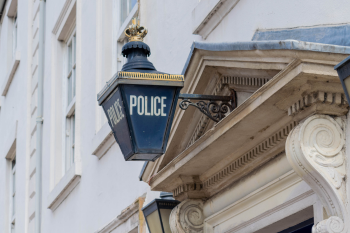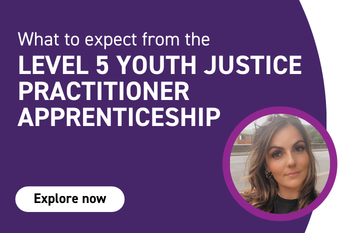Since 2014, World Youth Skills Day has taken place annually on 15 July. The international awareness day is organised by the United Nations, and it was started to celebrate the importance of equipping young people with the right skills for employment and work.
This message is one which rings particularly true for careers in the public sector today. With the number of firefighters decreasing by 21% since 2012 and 2022-2023 seeing the highest number of police leavers in one financial year since comparable records began, it’s more important than ever that young people see the benefits and rewards of a career in public services. In the coming years there will be many opportunities for progression and training that they can take advantage of.
To celebrate World Youth Skills Day, we’ve outlined some of the best pathways and methods for gaining experience in fire and rescue services and policing as a young person.
Fire and rescue services
Most fire and rescue services run a fire cadets scheme. If you are between 13-17, you can join one of these schemes to get an insight into what working in a uniformed service is like. You’ll learn basic firefighting skills, run firefighting drills and learn how to use the equipment. This is a great way to meet other people your age interested in firefighting and start developing your skills in these public sector skills. Many who take part in the fire cadets scheme go on to have careers in the fire and rescue service and become on-call or wholetime firefighters.
Previous SFJ Awards apprentice champion, Evie Peacock from County Durham and Darlington FRS was one such apprentice! She told us: “I was in college before applying for an apprenticeship however I was also part of the fire cadets at Bishop Auckland fire station. I saw adverts on Facebook and was told by my instructors at cadets about the apprenticeship scheme. I then went on to apply before completing several stages including online tests, physical tests, and an interview to be successful.” Hear more stories from fire and rescue apprentices here.
The scheme also offers you an excellent opportunity to meet and hear from firefighters about what they do. This is a great way to get some hands-on experience and find out if a career in firefighting is a good fit for you.

Following experience in the fire cadets, and after you are 18 or older, you can choose to train for a career as a firefighter by undertaking an Operational Firefighter Level 3 Advanced Apprenticeship. This apprenticeship typically takes 2 years to complete, and SFJ Awards is involved in the end-point assessments of 67% of fire services. The end-point assessment organisation is on hand to guide employers and training providers through preparing their apprentices for end-point assessment.
Other ways to gain experience in the fire service include volunteering or working in a support role, for example in emergency call handling. These opportunities provide an idea of what a job in the fire service is like and potential access to internal vacancies. However, like the apprenticeship route, volunteering and support roles usually require the individual to be 18 or over.
The final way you can join the fire service is through direct application. You don’t necessarily need to have had previous experience in the fire cadets to do this, nor do you need to have undertaken an apprenticeship, but many fire services will ask for GCSEs at grades 9 to 4 (A* to C) in English and maths, or equivalent qualifications. The process may take some time and usually involves
- Online aptitude tests
- Attendance at an assessment centre
- Fitness and medical checks
- Interviews.
Fire services regularly hold outreach events that you can attend to find out more and meet firefighters.
Police services
Similarly to the fire service, the police have their own Police Cadets scheme for 13- to 18-year-olds. Operating differently in every force across England and Wales, and known as Police Scotland Youth Volunteers in Scotland, the Volunteer Police Cadets provide an opportunity for you to support your local community, make new friendships, learn and develop new skills, and gain an insight into British policing. The Police Cadets scheme offers a fantastic way for you to develop your interest in a career in policing and begin to develop your skills in this area.
- Community engagement – Being able to meet and speak with members of the community about policing operations and initiatives.
- Building confidence, team work and leadership abilities.
- Understanding the role of policing in community safety and protecting vulnerable people.
- Community policing skills from time spent with Neighbourhood Policing Teams and Special Constabulary colleagues.
- An understanding of how the criminal justice system works.
Once 18 or over, and after this insight into policing, you may choose to progress in a career in policing. There are 4 main routes to start a career in policing. One of which is to enrol on a Level 4 Police Community Support Officer (PCSO) Apprenticeship. Typically taking 1 year to complete, this apprenticeship programme enables individuals to work as part of the neighbourhood policing team to help deal with and prevent crime.
The Level 4 Non-Home Office Police Officer is another apprenticeship route into a career in policing in non-Home Office Police Forces, such as the Royal Navy Police, the Royal Military Police and the Civil Nuclear Constabulary. SFJ Awards is an approved end-point assessment organisation for both the Police Community Support Officer and the Non-Home Office Police Officer apprenticeship standard.
Other routes into policing include the Degree Holder Entry Programme, Police Now’s National Graduate Leadership Programme, the Police Constable Degree Apprenticeship, the new Police Constable Entry Programme (PCEP) and the Initial Police Learning and Development Programme (traditional direct entry route).
Cadet schemes in the fire service and in policing are a crucial way of generating interest in careers in the public sector in people from a young age and they are key to developing youth skills. If you’re interested in a career either in policing or firefighter, find out more from past apprentices on our apprentice information hub. You can also use this hub to find useful links to websites where you can find the latest vacancies to develop your career in these areas.





